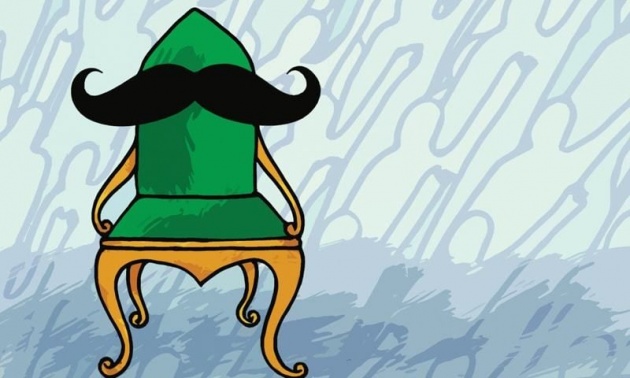Sir, I have a Ph.D in Urdu. I currently run an education academy; I want to be MNA. What should I do?
Sitting across from me in my office, Irshad, who looked like he was in his early 40s, wore well-pressed trousers and a crisp, spotless shirt.
His inquiry left me momentarily speechless.
As a lawyer, I am approached by hordes of people with 'perplexing situations' almost on a daily basis. Irshad was an exception. I looked past him at his motorcycle parked in front of my office and taking a deep breath, I replied: “You can’t”.
“Why,” he eagerly pushed. This was the start to an afternoon of futile arguments.
Also see: Bilawal to enter politics gradually, says Zardari
Admitting to having a current bank account of only 3.3 lacs, not owning a car and having had a modest upbringing, Irshad remained adamant and expounded a powerful argument with his multiple degrees and debate winning certifications, considerable insight into assembly workings and his work in student politics during college days.
He ended his note profoundly: “Why do people like me not have access to our parliament?”
A million dollar question, yet an open secret.

Large constituencies are the prime hurdle; with a huge area stretching 15 to 19 union councils, ordinary Pakistanis cannot access 300,000 to 400,000 voters and while the world is inching toward small electoral areas, Pakistan isn't.
In the UK, there 650 single-member constituencies for the 64.1 million population, France has 557 for 66 million, Canada 308 for 35.7 million, Singapore 87 for 5.4 million. In Pakistan, however, we have 271 electoral seats for 170 million people!
Take a look: Beyond dharnas: 12 proposals for electoral reform in Pakistan
The US with 435 constituencies for 322 million and India with 552 for 1.3 billion are not so suitable to refer here owing to stronger political traditions that are enough to sway a ‘mediocre’ candidate. And if you look at India, 1/3 of its Lok Saba members come to the assembly via rickshaws or public transport. I don’t see that happening in Pakistan.
A non-party system
In Pakistan, another concern for “electables” is a weak political system leading to a weaker party system. Since the country’s creation, more than half the time, dictators have been in power.
Political parties were either banned or “chosen” during those times and only the blue-eyed were allowed to join in. This trend has unfortunately seeped back in another form today and political parties seem to be revolving around leaders and not vice versa.
Also see: Establishment never accepted politicians, says Rabbani
The 1970 elections, however, saw some respite with a significant number of MNAs elected on meager election expenses. I vividly remember when my friend’s father sold off his bicycle to arrange his nomination fee for the MPA seat, he was elected as a member of the Punjab Assembly. However, the scenario changed in the wake of the 1977 martial law.
The introduction of a non-party system during the 1979 local government election paved the way for personal influence rather than political ideology. The role of finance, family clan and tribe was brought in to weigh in a large way.



